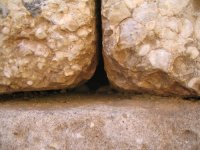-
You are here:
- Homepage »
- Greece »
- Peloponnese » Fikhtion

Fikhtion Destination Guide
Delve into Fikhtion in Greece
Fikhtion in the region of Peloponnese is a city in Greece - some 57 mi or ( 92 km ) West of Athens , the country's capital .
Current time in Fikhtion is now 08:28 PM (Saturday) . The local timezone is named " Europe/Athens " with a UTC offset of 2 hours. Depending on your travel modalities, these larger destinations might be interesting for you: Tiryns, Lacedaemon, Patras, Nemea, and Nea Tirins. While being here, make sure to check out Tiryns . We encountered some video on the web . Scroll down to see the most favourite one or select the video collection in the navigation. Are you curious about the possible sightseeing spots and facts in Fikhtion ? We have collected some references on our attractions page.
Videos
Extreme Dive
Scenes from the Imax documentary "Ocean Men: Extreme Dive" (2001). All rights belong to the authors and producers of the DVD. Ocean men is the fascinating story of two divers and their unique relation ..
Journey in the Ocean World
Scenes from "OceanWorld 3D" (2009). OceanWorld 3D is a 2009 documentary by Jean-Jacques Mantello. Documentary 3D, which speaks of animal life in the ocean, spectacular shows scenes over the ocean. Cal ..
Lighthouses
Lighthouses in the seas of the world ..
Αρκτική (Arctic)
Scenes from "The White Planet", 2006 . The White Planet is a 2006 documentary about the wildlife of the Arctic. It shows interactions between marine animals, birds and land animals, especially the pol ..
Videos provided by Youtube are under the copyright of their owners.
Interesting facts about this location
Treasury of Atreus
The Treasury of Atreus or Tomb of Agamemnon is an impressive "tholos" tomb on the Panagitsa Hill at Mycenae, Greece, constructed during the Bronze Age around 1250 BC. The lintel stone above the doorway weighs 120 tons, the largest in the world. The tomb was used for an unknown period. Mentioned by Pausanias, it was still visible in 1879 when the German archeologist Heinrich Schliemann discovered the shaft graves under the 'agora' in the Acropolis at Mycenae.
Located at 37.73 22.75 (Lat./Long.); Less than 3 km away
Mycenae
Mycenae (Greek Μυκῆναι Mykēnai or Μυκήνη Mykēnē) is an archaeological site in Greece, located about 90 km southwest of Athens, in the north-eastern Peloponnese. Argos is 11 km to the south; Corinth, 48 km to the north. From the hill on which the palace was located one can see across the Argolid to the Saronic Gulf. In the second millennium BC Mycenae was one of the major centres of Greek civilization, a military stronghold which dominated much of southern Greece.
Located at 37.73 22.76 (Lat./Long.); Less than 3 km away
Grave Circle A, Mycenae
Grave Circle A in Mycenae is a 16th century BC royal cemetery situated to the south of the Lion Gate, the main entrance of the Bronze Age citadel of Mycenae, southern Greece. This burial complex was initially constructed outside the fortification walls of Mycenae, but was ultimately enclosed in the acropolis when the fortifications were extended during the 13th century BC.
Located at 37.73 22.76 (Lat./Long.); Less than 3 km away
Lion Gate
The Lion Gate was the main entrance of the Bronze Age citadel of Mycenae, southern Greece. It was erected during the 13th century BC in the northwest side of the acropolis and is named after the relief sculpture of two lionesses in a heraldic pose that stands above the entrance. The Lion Gate is the sole surviving monumental piece of Mycenaean sculpture, as well as the largest sculpture in the prehistoric Aegean.
Located at 37.73 22.76 (Lat./Long.); Less than 3 km away
Dervenakia
Dervenakia is a small village in Corinthia, in northeastern Peloponnese. It is situated on the old road from Nafplio to Corinth. Dervenakia is part of the community of Archaia Nemea. The name is derived from the Turkish word derven, meaning mountain pass. The place is famous for the Battle of Dervenakia, fought on 26–28 July 1822 during the Greek War of Independence, where 2,300 Greek irregulars under Theodoros Kolokotronis defeated the 30,000-strong army of Ottoman general Mahmud Dramali Pasha.
Located at 37.79 22.73 (Lat./Long.); Less than 6 km away
Pictures
Historical Weather
Related Locations
Information of geographic nature is based on public data provided by geonames.org, CIA world facts book, Unesco, DBpedia and wikipedia. Weather is based on NOAA GFS.


